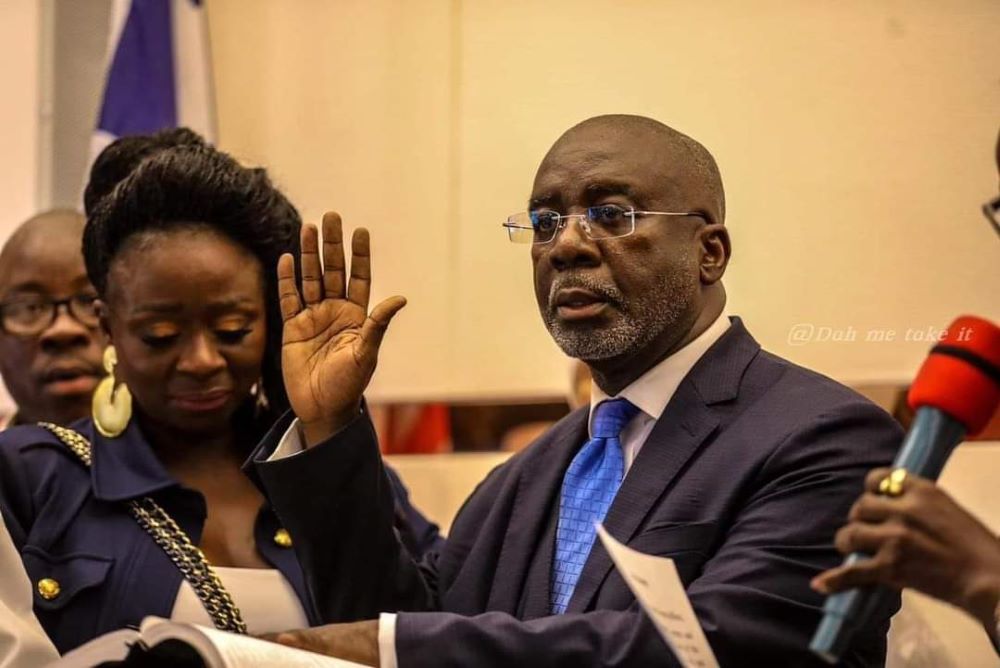The protracted political stalemate within the Liberian House of Representatives is poised to conclude with the anticipated resignation of embattled Speaker J. Fonati Koffa. This decision, expected to be announced today, follows weeks of intense back-channel negotiations mediated by prominent figures, including Catholic Archbishop Gabriel Blamo Snosio Jubwe and Sister Mary Laurene, and involving President Boakai. Speaker Koffa’s resignation comes after the Supreme Court reaffirmed his speakership, highlighting the complex political machinations that have paralyzed the legislative body for months. A key element of the resignation agreement involves the demand for Deputy Speaker Thomas Fallah to assume the role of acting Speaker until a legitimate election can be held. While this provision was met with resistance from certain members of the Majority Bloc, it was ultimately accepted as a necessary compromise to restore functionality to the House.
The crisis began in October 2024 when Speaker Koffa, then Deputy Speaker, called for an audit of the 54th Legislature. This sparked rumors of an impending removal attempt while Koffa was abroad with President Boakai on a state visit to the United States and the Vatican. Allegations of bribery quickly surfaced, with reports claiming that lawmakers were offered significant sums of money to support Koffa’s ouster. This fueled heated exchanges and near-physical altercations within the Capitol Building, further escalating the tensions. Despite attempts by Koffa to seek legal intervention through a writ of prohibition, the campaign against him gained momentum, culminating in Deputy Speaker Fallah defecting to the Majority Bloc. While the Bloc lacked the necessary votes for a constitutional removal, they proceeded to install Representative Richard N. Koon as a “regime Speaker.”
The Supreme Court’s intervention in November 2024 added another layer of complexity. Ordering all parties to revert to the status quo ante – the situation before the rebellion began – the Court’s ruling aimed to reinstate Koffa while acknowledging its limited authority to compel lawmakers’ attendance. This decision, however, failed to quell the conflict. The Majority Bloc continued to operate independently, ignoring Koffa’s warnings against engaging with them. The Minister of Justice further muddied the waters by interpreting the Supreme Court’s ruling in favor of the Majority Bloc, prompting Koffa to file a Bill of Information against him. Meanwhile, a fire engulfed the Capitol Building’s Rotunda, the Legislature’s official seat, adding a dramatic and symbolic element to the ongoing crisis.
The beginning of 2025 witnessed further deterioration of the situation. Some of Koffa’s allies began attending sessions held by the Majority Bloc, signaling a potential crack in his support. The Bloc then voted to forcibly remove Koffa, leading him to file another Bill of Information with the Supreme Court. In April 2025, the Court reaffirmed its earlier ruling, mandating the Majority Bloc to recognize Koffa’s speakership. However, this decision provided no immediate resolution, particularly as President Boakai declared his intention to work with the Majority Bloc, drawing widespread criticism and dividing the legal community. This impasse ultimately set the stage for the negotiated resignation, prioritizing the restoration of legislative function over a continued power struggle.
The resignation negotiations, facilitated by religious leaders and involving President Boakai, focused primarily on resolving the impasse and ensuring the smooth transition of power. While no monetary settlement for Speaker Koffa was discussed, the negotiators secured the release of withheld salaries and benefits for members of his caucus. The discussions, although initially productive, were briefly interrupted by a heated exchange between President Boakai and Speaker Koffa, highlighting the deep-seated tensions surrounding the conflict. Despite this temporary setback, the negotiations ultimately paved the way for Koffa’s pending resignation, a move intended to bring an end to the protracted legislative paralysis.
The case of Speaker Koffa’s embattled speakership underscores the fragility of democratic institutions in emerging democracies like Liberia. The crisis reveals the potential for political maneuvering to undermine legal processes and disrupt the functioning of government. The involvement of religious leaders in mediating the dispute highlights the important role civil society plays in conflict resolution and the promotion of stability. The episode also raises questions about the executive branch’s role in legislative affairs, particularly given President Boakai’s controversial decision to recognize the Majority Bloc despite the Supreme Court’s ruling. As Liberia moves forward, the lessons learned from this protracted political struggle will be crucial for strengthening the rule of law and ensuring the integrity of democratic processes. The resignation of Speaker Koffa marks not an end, but a beginning – the start of a complex process of rebuilding trust, restoring functionality to the legislature, and strengthening Liberia’s democratic foundations.














